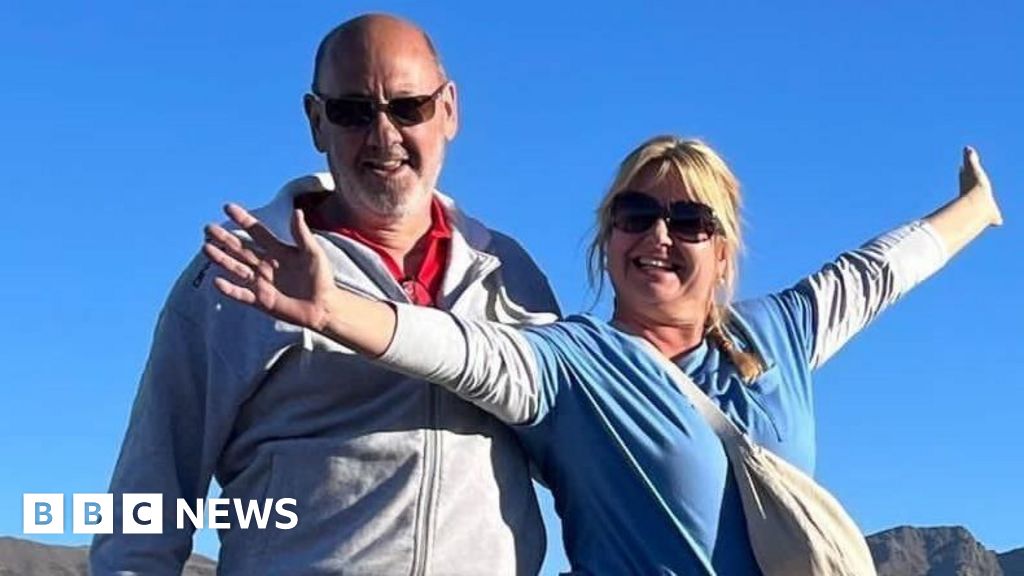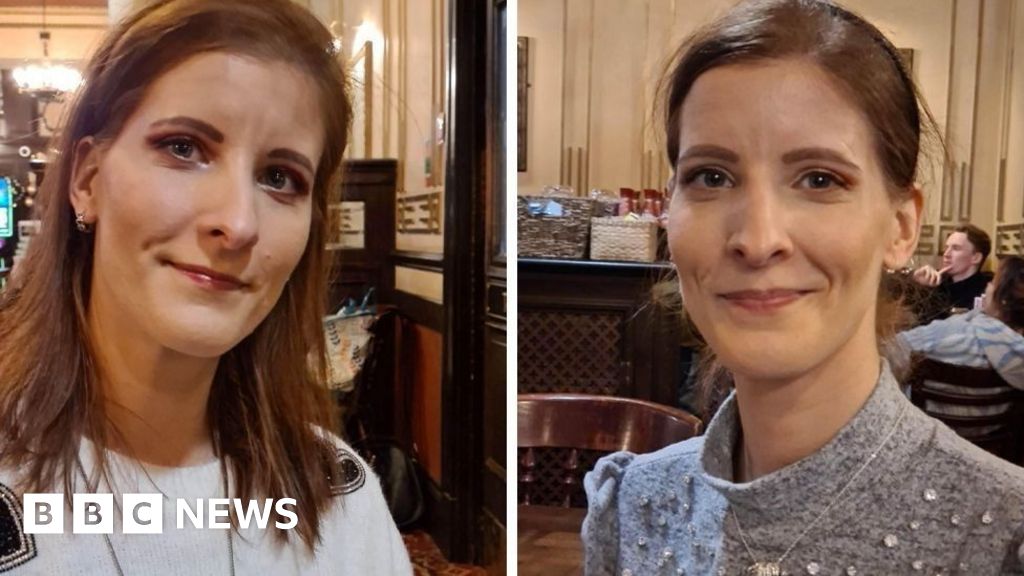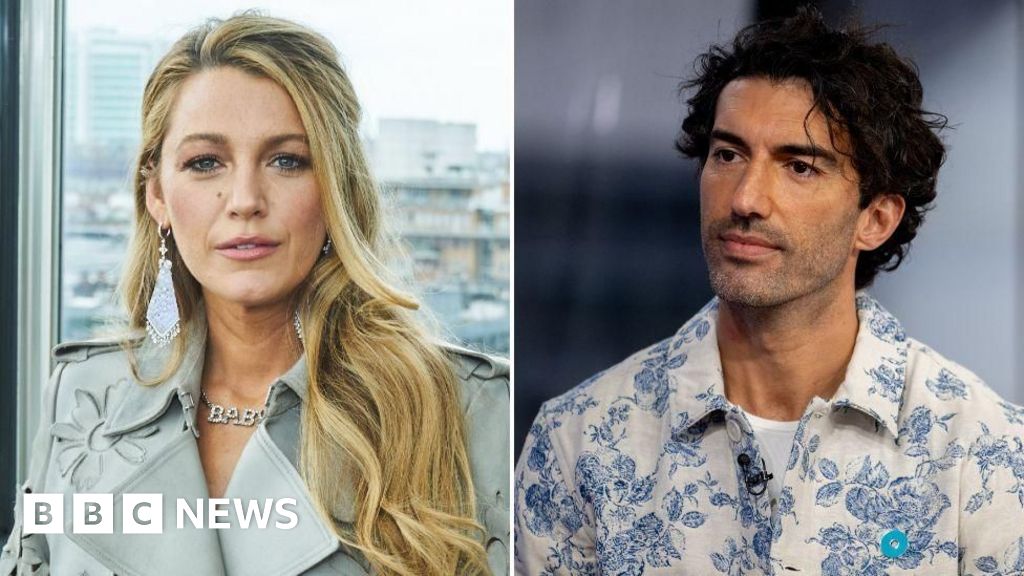Zoe Kleinman & Liv McMahon
Technology editor & reporter

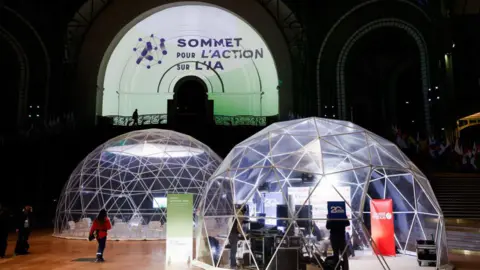 Getty Images
Getty Images
The UK and US have not signed an international agreement on artificial intelligence (AI) at a global summit in Paris.
The statement, signed by dozens of countries including France, China and India, pledges an "open", "inclusive" and "ethical" approach to the technology's development.
In a brief statement, the UK government said it had not been able to add its name to it because of concerns about national security and "global governance."
Earlier, US Vice President JD Vance told delegates in Paris that too much regulation of artificial intelligence (AI) could "kill a transformative industry just as it's taking off".
Vance told world leaders that AI was "an opportunity that the Trump administration will not squander" and said "pro-growth AI policies" should be prioritised over safety.
He said that this would require regulation which fosters AI development "rather than strangles it".
Vance added that leaders in Europe should especially "look to this new frontier with optimism, rather than trepidation".
His comments appear to put him at odds with French President Emmanuel Macron, who defended the need for further regulation.
"We need these rules for AI to move forward," Macron said at the summit.
The UK has previously been a champion of the idea of AI safety, with then prime minister Rishi Sunak holding the world's first AI Safety Summit in November 2023.
Andrew Dudfield, head of AI at fact-checking organisation Full Fact, said the government's decision not to sign the Paris communique put that in jeopardy.
"By refusing to sign today's international AI Action Statement the UK Government risks undercutting its hard-won credibility as a world leader for safe, ethical and trustworthy AI innovation," he said.

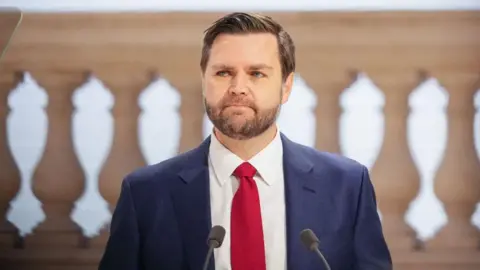 Bloomberg/Getty Images
Bloomberg/Getty Images
US Vice President JD Vance said "pro-growth AI policies" should be prioritised over safety
What does the agreement say?
The statement signed by 60 countries sets an ambition to reduce digital divides by promoting AI accessibility, and ensuring the tech's development is "transparent", "safe" as well as "secure and trustworthy".
"Making AI sustainable for people and the planet," is listed as a further priority.
The agreement also notes that AI energy use - which experts have warned could rise to use as much as small countries in years to come - was discussed at a summit for the first time.
"Looking at the summit declaration, it's difficult to pinpoint what exactly in that statement the government disagrees with," said Michael Birtwistle, associate director at the Ada Lovelace Institute.
The government said in a statement it "agreed with much of the leader's declaration" but felt it was lacking in some parts.
"We felt the declaration didn't provide enough practical clarity on global governance, nor sufficiently address harder questions around national security and the challenge AI poses to it," a government spokesperson said.
The government has signed other agreements at the Paris AI Action Summit, including about sustainability and cybersecurity, they added.
Downing Street has also insisted it has not been led by the Trump administration.
"This isn't about the US, this is about our own national interest, ensuring the balance between opportunity and security", a spokesperson said.
Balancing acts
It comes amid discussions at the summit about the impact of AI development on society, the environment and governance.
Policy-makers, executives and diplomats have been mulling ways to capture the economic benefits of AI innovation, while addressing the technology's risks.
It was kicked off by Macron posting a compilation of jokey deepfake clips of himself in popular films and TV series on social media.
"This summit is focused on action, and that is exactly what we need right now," said European Commission president Ursula von der Leyen on Tuesday.
She said Europe's approach to AI, which has been championed throughout the summit, would also emphasise innovation, collaboration and "embrace the power of open source" technology.
The meeting is also taking place at a time of growing trade tensions between the US and Europe.
President Tump has decided to impose tariffs on steel and aluminium imports into the US, a move that will affect the UK and EU.
It's understood the UK will not immediately retaliate, as it seeks to tread a delicate path of maintaining good relations with the Trump administration while also building closer ties with the EU.
 (1).png)
 3 hours ago
2
3 hours ago
2
